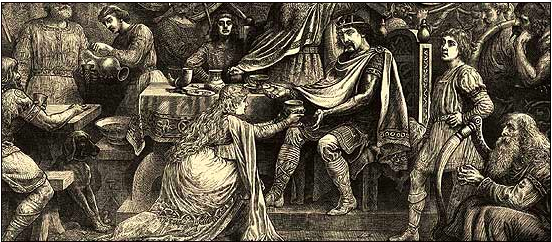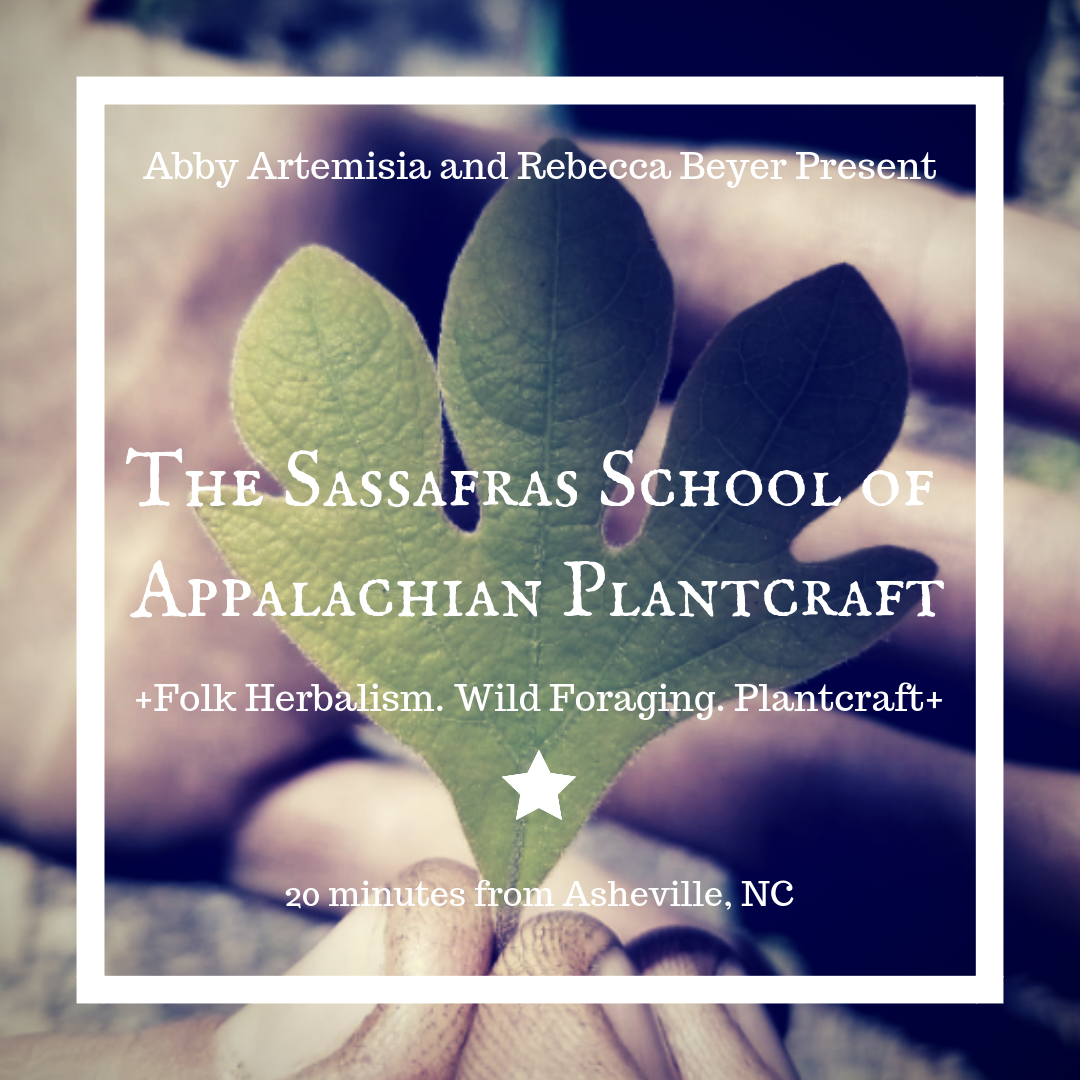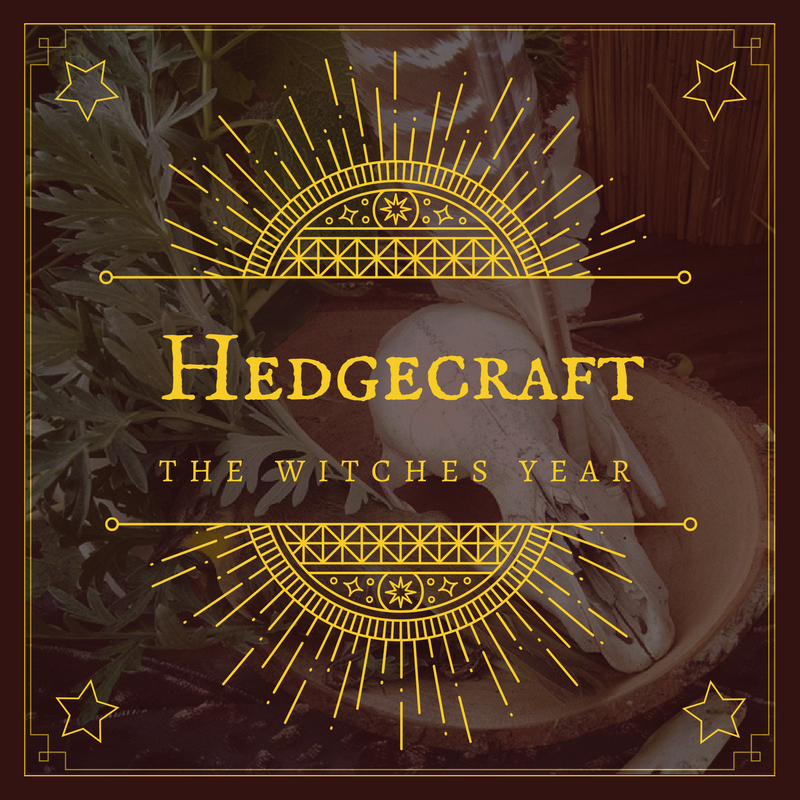|
Wintery weather came rather suddenly to us here in the mountains this year. I was wearing flip flops not a month ago, and now I can barely type in my house it’s so chilly...Time to pull my extra box of sweaters out from the basement… I’ve always had a controversial stance with this time of year, and it’s that I love it. I love Christmas time. Solstice time. I love it. The magic feeling of Christmas was one of the first ways in which I was able to engage in magical actions in my family. It was basically a witches gateway drug for me. Christmas is so thoroughly pagan that it is not hard to see how it beguiled my wee mind. As a child, my mother, who already thought I was pretty damn strange, told me she would catch me at night, just sitting in contemplation of the Christmas tree all lit up with lights and our family ornaments. I had a lot of big, magical feelings as a child, and few ways to express them. But sitting there, before this sight of lights, family history and colorful fancy, I found myself enthralled by the feeling of being enchanted. The feeling of “something more than”, and “wonder”. This was the feeling that I chased which led me to where I am today. So maybe I have Christmas to thank for leading me down the delightful shadowed trail I now follow. One of the ways that we piece back together those pagan practices and beliefs which were suppressed in the Middle Ages by the Church, is through folk survivals in holiday celebrations, song and dance. This year, my best friend, Saro Lynch Thomason, revived our local group of Wassailers, and I have been delighted to be apart of it again. What is Wassail? And what is Wassailing? Wassail refers to “good health” or drinking to someone’s good health. The act of going to Wassail someone or some tree, as well shall see, was a way to drink to their health to ensure their continued prosperity. And while there are many fine articles on Wassailing people, I want to focus on the practice of singing to Apple trees during this season. I’ve written a little of it before, and on the lore of Apple wood, but the practice of making offerings of cider, singing, dancing and even whipping trees to get them to bear great crops in the New Year is a fascinating practice that survives to this day. The origin of the word Wassail is murky but here is one explanation from the stories of King Arthur: “A story told in Geoffrey of Monmouth's History of the Kings of Britain, written in 1135, purports to explain the origin of the toast: While Vortigern was being entertained at a royal banquet, the girl Renwein came out of an inner room carrying a golden goblet full of wine. She walked up to the King, curtsied low, and said “Lavert King, was hail!” When he saw the girl's face, Vortigern was greatly struck by her beauty and was filled with desire for her. He asked his interpreter what it was that the girl had said and what he ought to reply to her. “She called you Lord King and did you honour by drinking your health. What you should reply is 'drinc hail.'” Vortigern immediately said the words “drinc hail” and ordered Renwein to drink. Then he took the goblet from her hand, kissed her and drank in his turn. From that day to this, the tradition has endured in Britain that the one who drinks first at a banquet says “was hail” and he who drinks next says “drinc hail.” Wassailing has been done in different ways by different people throughout the Europe, each place having its own unique method and custom, but here are some commonalities of this mirthful celebration. Offerings of either toast or cake sopped in cider were hung in branched of the Apple trees in the orchard and cider poured onto the roots to encourage the tree to bear plentifully the following year. Much noise was made, perhaps to frighten away evil spirits which might harm the productivity of the tree through howling, yelling, firing guns and loud singing. The best producing tree in the orchard may also be similarly dressed in ribbons or decorated in someway to celebrate it’s bounty. The noise of stamping feets and singing voices also served to wake up the sleeping winter trees. Bonfires and lanterns were lit to bring light into the dark, chilly orchards on these nights. And just when this practice was done varies widely from Christmas Eve, to Twelfth Night to Old Twelfth night. For our purposes, anytime between St. Stephen’s Day on the 26th of December the the 17th of January are fine times to Wassail in orchards. Germans tied trees together declaring them married and encouraged them to be fruitful. They also hung apples along with other edible treats as ornaments. In Eastern Europe, a apple is cut cross-wise on Christmas Eve. If the core displays perfect stars, it foretells of fortune and good health for the upcoming year. In Normandy young apple trees were not harvested to leave the apples for the birds (or the Fae), which was called pixy-hoarding, cullpixying or griggling. Here are a few of my favorite ways to sing or startle the Apple trees awake: “Apple Tree Wassail” from the Watersons, who say that it is from the area of Devon and Somerset. This is the version my Wassailing group performs: Lily-white, lily-white, lily-white pin, Please to come down and let us come in. Lily-white, lily-white, lily-white smock, Please to come down and pull back the lock. Chorus: For it’s our wassail, jolly wassail, Joy come to our jolly wassail. How well they may bloom, how well they may bear, That we may have apples and cider next year. Master and mistress, oh, are you within? Please to come down and let us come in. Good health to your house, may your wishes come true Now bring us some cider and we’ll bring down the moon. Chorus There was an old farmer that had but one cow (start stamping!) And how to milk her, he didn’t know how. He put his old cow all in his old barn, And a little more cider won’t do us no harm. Harm, me boys, harm, Harm, me boys, harm, A little more cider won’t do us no harm. Chorus O the ringles and the jingles and the tenor of the song goes Merrily merrily merrily O the tenor of the song goes merrily. Shouted: Apples, apples! Hatfuls, capfuls, three-bushel bagfuls, Little heaps under the stairs! Hip hip hooray! ------------------------- A spoken rhyme from Roy Palmer in the Illustrated London News of January 11, 1851: “Here's to thee/ Old apple tree!/ Whence thou mayst bud,/ And whence thou mayst blow,/ And whence thou mayst bear,/ Apples enow:/ Hats full,/ Caps full,/ Bushels,/ bushels, sacks full,/ And my pockets full, too!/ Huzza! huzza!” ------------------------- from the Gentleman’s Magazine, 1791 Here’s to thee, old apple tree, Whence thou mayst bud And whence thou mayst blow! And whence thou mayst bear apples enow! Hats full! Caps full! Bushel--bushel--sacks full, And my pockets full too! Huzza! Version B. from the Shekerjian book which has music Here’s to thee, old apple tree Here’s to thee, old apple tree Verse 1. Well mayest thou bud, And well mayest thou blow, And well mayest thou bear Of apples enow! Hats full, caps full, Good bushel sacks full, My pockets too. Hurrah! Wassail! Verse 2. Give us a crop Of good apples ripe, Red and well-rounded The good juicy type! Verse 3. Here is our ale, Now drink of it well, And give us good apples Of which we can tell. ------------------------- The Apple Howling Chant from Sussex: Stand fast root, bear well top. Pray good God send us a howling good crop. Every twig, apples big, Every bough, apples enow. (and then shout!) Hats full, caps full Five bushel sacks full And a little heap under the stairs Holla, boys, holla! (and blow the horn!) ------------------------- Folk-songs from Somerset, gathered and edited by Cecil Sharp, and published in 1904. The text is available on the net at Folk-songs from Somerset. Old apple tree, we’ll wassail thee, And hoping thou wilt bear. The Lord does know where we shall be To be merry another year. To blow well and to bear well And so merry let us be; Let every man drink up his cup And health to the old apple tree. Spoken: Apples enow, hatfuls, capfuls, three-bushel bagfuls, tallets ole fulls, barn’s floor fulls, little heap under the stairs. Hip, hip, hip, hooroo! Hip, hip, hip, hooroo! Hip, hip, hip, hooroo! (Shout, stamp and fire off guns). Interestingly enough, Cecil also noted that people Wassailed their bees! There were known as “Bee Worsels”. I encourage wassailing most things. Many of these songs and their origins were gleaned from the excellent site: Proto-Indo-European Religions. So however you choose to celebrate this time of year, and if you love apples, thing about reviving the old and lovely practice of Wassailing your orchards, or those that you frequent. Wassail! Works Cited:
Apple Wassails on Conrad Bladey’s website. Proto-Indo-European Religions Popular Romances of the West of England by Robert Hunt, Chatto and Windus, London, 1903. A Book of Christmas Carols edited by Haig and Regina Shekerjian, arranged by Robert de Cormier, Harper & Row Publ., New York, 1963. Apple Tree Wassail lyrics as sung by the Watersons on the Mostly Norfolk page. Folk Songs from Somerset by Cecil Sharp, Simkin & Co. Ltd, London, 1904; on the IMSLP site at Folk Songs from Somerset. Palmer, K., and R. W. Patten. “Some Notes on Wassailing and Ashen Faggots in South and West Somerset.” Folklore, vol. 82, no. 4, 1971, pp. 281–291. Discovering the Folklore of Plants by Margaret Baker Apple Tree Wassail in his Everyman's Book of English Country Songs, and quotes the Illustrated London News of January 11, 1851
0 Comments
|
Archives
April 2024
To support me in my research and work, please consider donating. Every dollar helps!
|


 RSS Feed
RSS Feed
